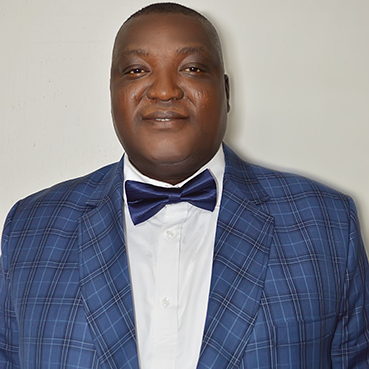
The Africa Update TV team met with a Professor of Economics and University Don Professor Okey Onuchukwu, in Rivers State, to discuss recent policies of Central Bank of Nigeria, especially the E-Money policy, its implications on the economy and other critical policies of Government and how it affects citizens.
Excerpts from the interview:
On today’s episode of our current affairs program, tagged the Platform, we have our guest Prof. Okey Onuchukwu and he’s going to talk on the economy and policies that affect the economy.
Question 1: There’s this talk about E-MONEY that has been trending and a lot of us are wondering what the policy would achieve.
Prof. Onuchukwu: Well, I heard it’s a CBN crypto currency which was just recently announced to Nigerians and my view is clear about it that that is not even our problem now. Our problem is how to save the economy by ensuring that policies would decrease interest rates in order for investors to borrow and invest to grow the economy.
E-MONEY itself is what can be referred to as digital money. It eases transactions and is very fast. Some of the advantages are you would eliminate what we call intermediaries (middlemen) and they want people to get money directly. So CBN can give money directly to people without passing through the banks for the banks to charge interest rates. So it means that the cost of E-MONEY is very low.
Two, transactions are very fast. Like if I want to transfer, I can wire it immediately and you can get it without passing through so many processes.
But one thing we must understand is that the banks are functioning in the money market to trade with money and when they trade with money, they charge interest rates and then use the interest to sustain themselves and also pay their workers.
So if you embark on a policy that would eliminate the intermediaries, it means that some people would be unemployed and we don’t need that kind of situation in Nigeria because the level of unemployment in Nigeria is as high as 23%, graduate unemployment is as high as 33% so we don’t need anything that would add to the unemployment situation in the country.
If CBN is going to incorporate the banks very well to these policies, fine because there is no way we would not have financial intermediation. This is like getting money from the surplus unit and then sending it to the deficit unit, there must be somebody in between who would have to put these fund units together and if CBN begins to do this directly to and from individuals, it means that the activities of intermediaries would reduce and that would create unemployment in the system.
Fine there are so many things that can be derived from it when you have a well developed economy, our economy is still very rudimentary. What we need now is investment whether domestic or foreign investment in the economy that would expand the productive base in order to grow the economy and that can only happen when you have source of funds that is cheap. Interest rates in this country is still double digits.
Even the monetary policy rates are hovering around 12.5% or 13% and when they get to banks, the banks could increase with over 10%, some banks charge as high as 22% interest rate for what we call lending rate. It’s even worse with community banks (microfinance banks). Some microfinance banks even charge as high as 30%, so how can investors get money at that rate, invest and make profit.
So what I’m saying in essence is that we should try as much as possible to ensure that the cost of funds in this country is reduced. Some countries have 0 interest rates or 0.1 interest rates. Like that, investors can get the money and invest and pay back the loan with ease. But when the rate of interest is very high, it means that the cost of the fund is very high and it reduces investments in our country. The key thing CBN should focus their policy on apart from their developmental policy, is to ensure that interest rates do not go up. Particularly lending rates so that investors can get money, invest and do what they can.
Question 2: What advise do you have for those handling our economy and what can they do to take us out of this problem?
Prof. Onuchukwu: Well basically we know that for any economy to grow we need to be adding value. The value addition is very important, meaning to transform primary products to finished products. It’s only when they do that they can create value chain and that value chain would create employment and also make products available and reduce the rate of inflation in the society.
So whatever we are doing, the policies must be geared towards increasing production, that is stimulating production for the growth of the economy. If you check even in the oil industry, you know oil is the main stream of the Nigerian economy. What we do is to dig out crude oil and sell to international market and then share the proceeds between federal, state and local government to finance “development”.
We are not adding value, refineries are not working. If we are refining our products, to get PMS, kero, diesel and even aviation fuel, it means that we can sell these domestic products and then the excesses, we sell to neighboring countries and get foreign exchange and that foreign exchange can be diversified into some other sectors like agriculture, manufacturing and so on.
But what we’re doing is to dig out the primary product which is the crude oil and sell in the international market, no country can develop like that, no country can grow without adding value. So we must as a people, be conscious of it, develop policies that would encourage production particularly in the sectors like agriculture, manufacturing and servicing.
Thank you so much Prof.
Thank you for tuning in, we look forward to having you next time.
To feature on Africa Update TV current Affairs program, tagged the Platform, send a message or call 08186967084 or WhatsApp 08033094639 or email africaupdatenewspaper@gmail.com






